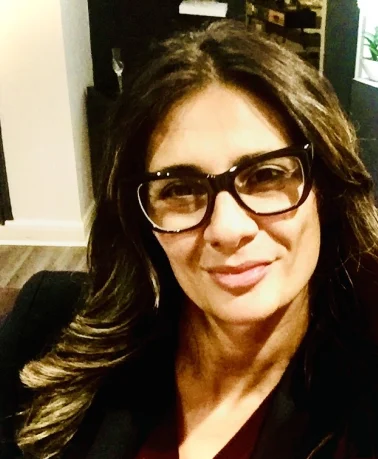Counselling and Psychotherapy in Fulham and Online


You can be the Captain of your Soul! Find Your way through Therapy
My approach to therapy is to help you to help yourself.
I always had a passion for psychology and the human mind. As a child, I was trying to understand why the villains in the cartoons turned out to be that way. There is always a story to be told, to be listened to, and to be understood.
I am a qualified Humanistic Counsellor, trained at The Metanoia Institute and a member of BACP.
I have volunteered at MCPS and EACs in Ealing, both community counselling centres offering help to local people who want to deal with their mental distress.

Areas of Interest
I have a passion for human relationships, treatment of anxiety, trauma and PTSD, depression, coaching therapy, neurodiversity, and how neuroplasticity can influence psychological wellbeing. I have an interest in eastern medicine and holistic remedies, all is connected if you feed bad thoughts to your mind, your body will be negatively affected

A Journey of Self-Discovery
"Know thyself" is the recommendation of the ancient Greek philosophers to their students and fellow citizens.
I will guide and support you in the journey to know yourself—what troubles you, why it really hurts, your patterns—and discover your own unique solutions to deal with it and move forward.
If you are reading this profile right now, you have already done a small step to support your mental health, well done! Keep moving.
Remember you are the cure and the cause.

A Safe & Supportive Space
I firmly believe in the innate power of human beings to recover, change, and develop. I strive to provide a warm and non-judgemental environment that will give you the chance to stop for a moment, feel comfortable to be yourself, and tell your story.
By telling your story and feeling heard, you will be able to see yourself with clarity. In that moment I will encourage you to start changing your narrative, to believe there is an alternative way.
What issues can counselling help with?
Feelings of stress or anxiety
Panic attacks
Relationship problems
Grief, loss or bereavement
Problems with addiction
Trauma and post-traumatic stress
Depression
Problems with confidence or self-esteem
Anger management
Issues relating to sexuality
Difficulties at work or in retirement
Problems with family or school life
Therapeutic Modalities
I will work with you using different tools from different modalities.
We will assess together what is the best approach for you. It will be transformative.
Person-Centred Therapy
Gestalt Therapy
Transactional Analysis
Free Initial Consultation
I offer a 30-minute free session, either on the phone or on Zoom, where you can decide if I am the right therapist for you.
On our first session, we will discuss your therapeutic plans and the goals you want to achieve.
Please get in contact via email preferably, or phone, and we can schedule the free 30-minute session.
Session Structure & Pricing
- Standard session: 50 minutes
- Online session: £60 per hour
- In-person session: £70 per hour
We will review progress every six weeks via a brief questionnaire, which I have tailored for my clients.
I have limited space for discounted sessions for students or those on low income. The price per session will be discussed upon availability.
Get in touch
Feel free to contact me if you have any questions about how counselling works, or to arrange an initial appointment. You can also call me on +44 73930 62106 if you would prefer to leave a message or speak to me first. I am happy to discuss any queries or questions you may have prior to arranging an appointment. All enquires are usually answered within 24 hours, and all contact is strictly confidential and uses secure phone and email services.
Some frequently asked questions
Counselling is a talking therapy that involves a trained therapist listening to you and helping you find ways to deal with emotional issues. A therapeutic space where you (the client ) with the help of a qualified professional ( the counsellor) can identify and work towards reducing any emotional distress, increasing your self-awareness and developing healthy coping skills.
Many therapists tend to view Counselling as ‘short-term’ work; when someone has a problem that can be looked at and discussed in a clearly-resolvable way. This work often requires undertaking sessions for a certain number of weeks, to explore, discover and clarify a way forward. Therapy is a word used more to describe ‘long-term’ work; discussion that tends towards substantial issues and things that might be life-changing on a deeper level.
Whether counselling or therapy work best as a short- or long-term option depends on the client though, and the difficulties they are facing. In some cases counselling can prove helpful as a continuing, longer-term option, or therapy can help resolve an issue in just a few sessions.
There’s no fixed or ideal length of time for the counselling process; it varies from person to person and will often depend on the depth of the issues they are facing. While I can work on an open-ended basis with clients, I find it is helpful for us to both agree before we start on undertaking a certain number of sessions and reviewing where we are at once we reach that point. You are able to decide how long your therapy will last, and in return my aim is to make sure therapy continues for only as long as it is of benefit to you.
This depends on what your needs are. Some people find that after only a very few sessions they have some clarity and focus and are ready to end the therapy. Other people value the ongoing support and relationship with me and will continue to come for weeks, months, or even years. There is no 'one-size-fits-all' when it comes to therapy.
My aim is to offer you a first appointment, known as an assessment session within 1-2 weeks, this is once we receive your completed client pack back. However, waiting times will vary according to pressure on our resources, your own availability and the service you seek.
An appointment to our short term counselling, which is not subsidised, can be offered within about one week.
Confidentiality is one of the main ways in which therapy differs from many other forms of helping - for example, talking to friends or family can rarely offer the same degree of confidentiality as talking to a counsellor. Because of this confidentiality, you will find that - as you get used to coming for therapy - you are freer to talk about whatever you wish to.
No therapist can offer 100% confidentiality: there are some situations where the law requires disclosure of risk (e.g. certain child protection issues) and in common with most other therapists, there are some situations where I may not be able to keep total confidentiality. In particular, if someone tells me that they are thinking of harming themselves in a way that I believe puts them at serious risk, or if someone tells me that they are doing something that could put others at risk, I may not be able to keep such information confidential. However, breaking confidentiality is rare, and only happens after talking to the person concerned.
When you come for counselling it's important that you feel free to talk about whatever is important to you. Sometimes, you may not be clear what those issues are. Having a friend or family member with you is not usually helpful because they may have their own agenda for you. Even if this is just that they want to be supportive, or want you to 'get better', this agenda can prevent us opening issues up. When you come for therapy, you may need to explore thoughts or behaviours about which you feel ashamed or embarrassed and you may censor yourself so as not to hurt someone, or you may find that what they want you to talk about is not really what you need to discuss.
Sometimes, family/friends can even be part of an underlying issue which needs to be aired and discussed. Usually, people who ask this question are nervous about coming for a session alone, or they are anxious for the person who is thinking about arranging sessions. This anxiety is quite normal, and you will not be forced to talk about anything you feel uncomfortable about - but you do need to be able to talk about whatever is important. For this reason, I do not see clients accompanied by friends or family.
